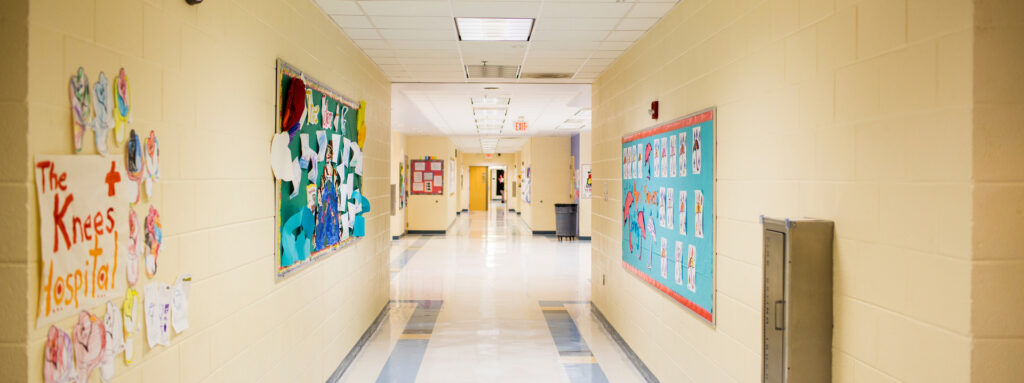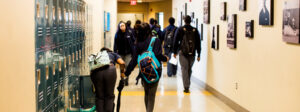Just three days into my son Taylor’s first week of kindergarten, I began receiving phone calls about his behavior. According to the school, Taylor spent a great deal of time under his desk, and would often wander out of the classroom. He found it difficult to sit still for long periods of time, and would cope by rocking back and forth in his chair—a habit that regularly caused him to fall from his seat. Soon these calls shifted from discussions about his behavior to reports that he spent the day in the principal’s office. To them, Taylor was “just too disruptive for class.”
Looking back on this first week of school, I can see all the ways his teachers and I could have worked together to help Taylor. But at the time we were all failing my son.
The journey to get Taylor the education he deserved made me realize how the system can work against parents—in spite of laws designed to protect students like my son—especially if we don’t have all the information we need.
In our case, Taylor’s first school recommended a support plan that I knew wasn’t comprehensive enough. But I went along with it, because I thought it was our only option. It didn’t help. As Taylor spent more and more time in the principal’s office, he missed out on valuable classroom time because no one knew how to support him effectively. Eventually, I quit my job, and my husband and I sold our home so that I could give my son my full-time attention and move him to a new school.
I spoke to several friends who worked in education, and learned that Taylor needed an Individualized Education Program (IEP). But to qualify, he needed a formal diagnosis, which can be expensive to obtain. Not only did our new school refuse to test my son, but they suggested that his behavior—at age five—was purposeful. I suspected there might have been bias on the part of his teacher, but the principal dismissed my concerns.
All this compelled me to pursue private disability testing and legal counsel to get my son the help he needed. And eventually, we had a diagnosis: slow processing speed, ADHD, epilepsy, and autism spectrum disorder.
We enrolled Taylor in a third school, and the school administrators allowed me to take on a job as his one-to-one aide. Finally, he began to thrive. He’s not disruptive; he’s a wonderful child with much to offer, given the right support. Today, he’s surrounded by a strong team of people who believe in him—a key ingredient to any child’s success.
No parent should have to go through what I did to ensure their child is getting a great education. I was able to take on caring for Taylor as a full-time job, and had the resources to get him tested and even bring in legal support. But I realize many parents don’t have these options—and frankly, we shouldn’t have to exercise them, anyway.
I’m now working with parents to help them better understand how to navigate the special education process. But it takes more than just parent involvement—we need educators to be better equipped to help, too. Now that I work in education, I’ve thought about how we can empower teachers and school leaders to make the process more collaborative for everyone involved. Here are some things that would’ve helped my family:
View parents as equal partners and share information. Parents are deeply invested in their child’s success—and they should never feel that their perspective isn’t valid, even if they don’t bring the professional expertise that educators do. Often, just giving parents clear information goes a long way. For example, many parents don’t know that if an in-person meeting is logistically challenging, phone meetings are available as an alternative. I urge schools to think of parents as partners, not adversaries, and give them clear, comprehensive information about their choices.
Remember how emotional the process can be for parents. By the time a parent gets to the point where their child needs services, they’ve gone through countless emotional ups and downs. Often, accepting that their child even has a learning difference is the hardest part. Not to mention self-blame, potentially suffering through family disapproval, and a host of other challenges. Educators should assume the best about each parent, even when conversations become fraught.
Be flexible and think creatively. Schools should do everything in their power to make the process easier for parents, given how high the stakes are. Maybe sending a letter home, email communication, or even texting is the best way to accommodate a parent’s busy schedule. Creative thinking can apply to emotional challenges, too. If a parent feels isolated, introducing them to another parent whose child is struggling with the same thing can help. The possibilities are endless when it comes to making a partnership work, as long as everyone involved is invested and open-minded.
My experience with Taylor’s entrance into elementary school was challenging, but this doesn’t have to be the norm. If educators commit to partnering with parents, and vice versa, we are certain to see better outcomes for our kids. Students with learning disabilities offer both educators and parents invaluable opportunities to grow. When we take these opportunities, we get the best out of students, and they thrive.





